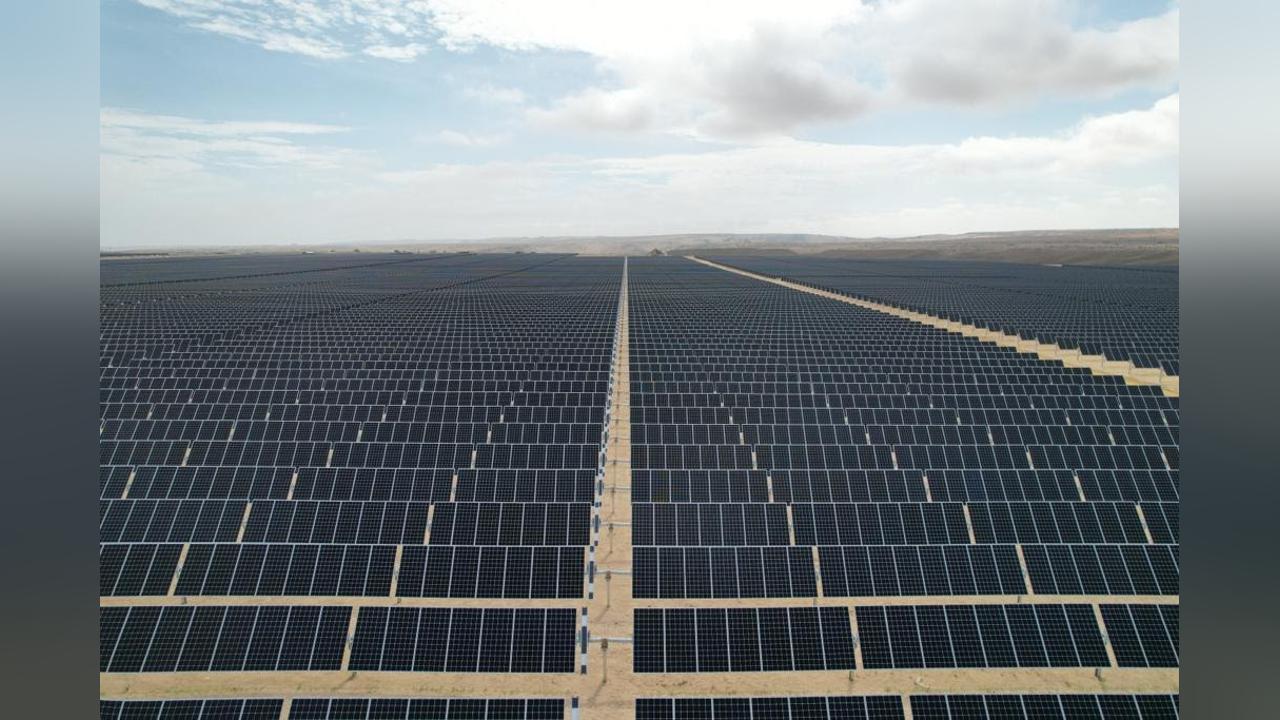Africa-Press – Botswana. The green technology revolution is now unfolding in the heart of Botswana.
Five vehicles, a robust Land Cruiser, a practical Nissan, a nimble Subaru, and two dependable Corollas, stand as silent demonstrations to a burgeoning electric mobility movement transforming the nation’s transportation landscape.These are not just ordinary vehicles. They are symbols of Botswana’s proactive commitment to a sustainable future, a commitment that is both ambitious and remarkably achievable. Two of them, a Land Cruiser and a Subaru displayed proudly at this year’s Northern Trade Fair, these converted cars hummed with quiet power, a stark contrast to the roaring engines of their petrol-powered predecessors.
The success of this initiative, spearheaded by a team of dedicated engineers, is undeniably impressive. It is not just about converting vehicles but reshaping the nation’s relationship with transportation, tackling environmental concerns, and embracing a future powered by cleaner energy. Senior Engineer at eMobility, a company converting the vehicles, Patrick Sebudubudu, the driving force behind this project, beams with justifiable pride.
“People doubted us but seeing these vehicles here, running smoothly, speaks for itself. It is remarkably straightforward, recharge, and you are good to go,” said Mr Sebudubudu.
He explained that the maintenance was significantly lower compared to petrol vehicles, with less frequent servicing, fewer parts to replace.
“It is cost-effective and environmentally responsible,” he added.
Mr Sebudubudu said simplicity of the technology belies the magnitude of its potential impact on Botswana’s future.
“This is not just a theoretical exercise, it is a tangible reality,” he said.
He explained that the converted vehicles had proven their reliability in real-world conditions. Mr Sebudubudu stated that one of the converted cars, a Subaru, a demonstration to the project’s success, even served the former President, Dr Mokgweetsi Masisi during his political campaigns, without incident, silencing critics and bolstering public confidence in this innovative approach. He explained that the advantages of embracing electric mobility were multifaceted and compelling.
“The most immediate benefit is the reduction of harmful emissions, contributing directly to cleaner air and a healthier environment. This aligns perfectly with Botswana’s commitment to mitigating climate change and reducing its carbon footprint,” he added.
Beyond the environmental benefits, he said that the economic advantages are significant.
“Lower maintenance costs, reduced fuel expenses, and a decreased reliance on imported fossil fuels translate to long-term cost savings for both individuals and the nation,” he added.
He said the successful conversion of the five vehicles was not just a milestone, but a launchpad.
“It signifies a broader shift in Botswana’s transportation strategy, showcasing the nation’s willingness to embrace cutting-edge technology and prioritise sustainable practices,” he added.
Mr Sebudubudu reported receiving one vehicle from government for experimentation and that they are currently testing it. He said they had also converted a Botswana Power Corporation (BPC) Land Cruiser and a Corolla for use in their programme.
“As we speak our team are currently on a countrywide tour to brief council meetings on the new innovation One observer,” Mr Fidzani Masole commented during the display that the conversion is a powerful declaration that Botswana was electrifying its future, one sustainable step at a time.
He said the project’s success, particularly the former president’s positive experience, had effectively dispelled much of the initial skepticism, paving the way for a wider adoption of eMobility and promising a cleaner, greener tomorrow for Botswana. He explained that several SADC countries have seen increasing use of electric cars in recent years. South Africa, being the most developed economy in the region, likely leads in terms of numbers of electric vehicles in use. Other countries like Botswana, Namibia, Mauritius, and possibly others have seen some level of adoption, though on a smaller scale compared to South Africa.
For More News And Analysis About Botswana Follow Africa-Press






